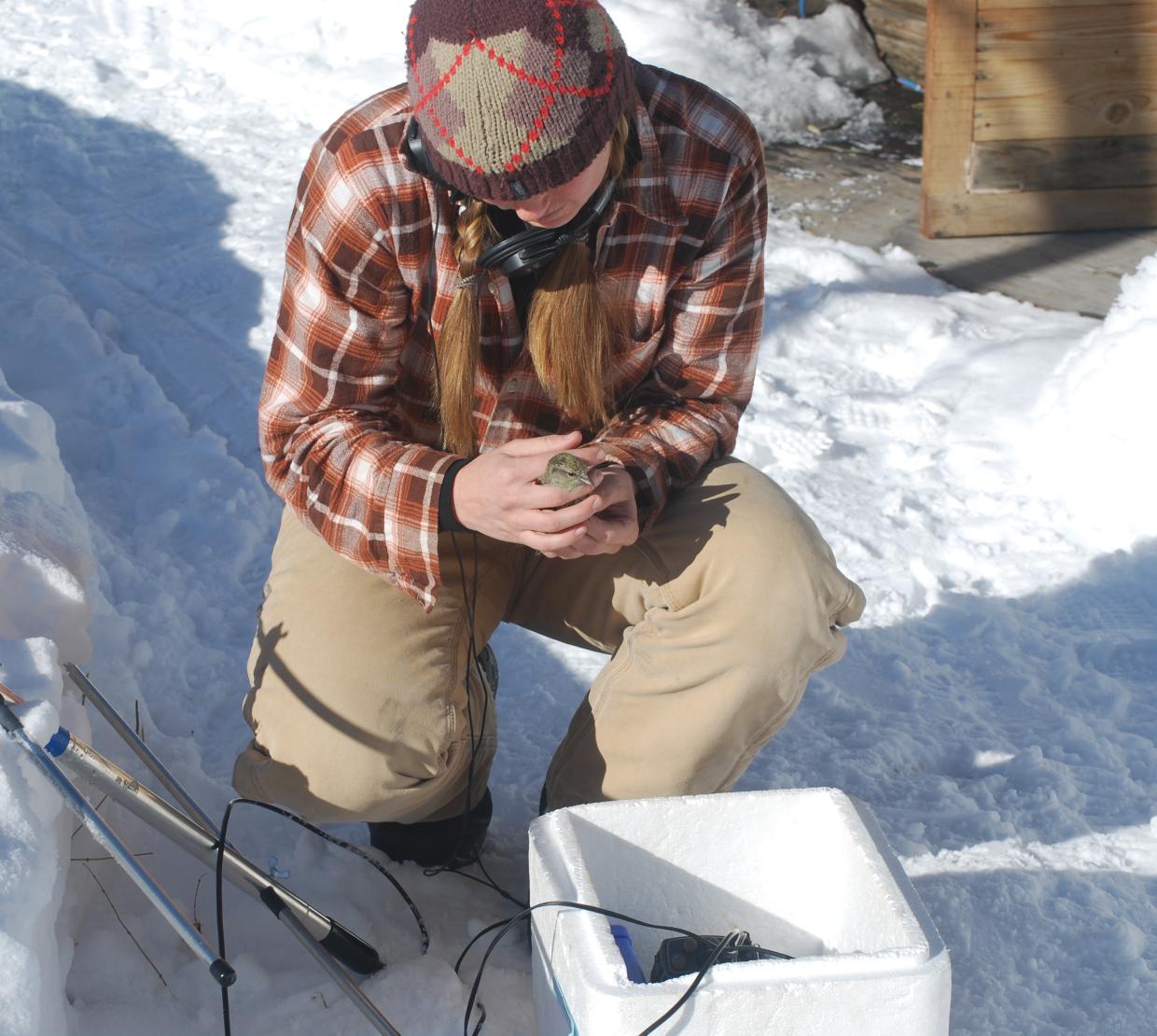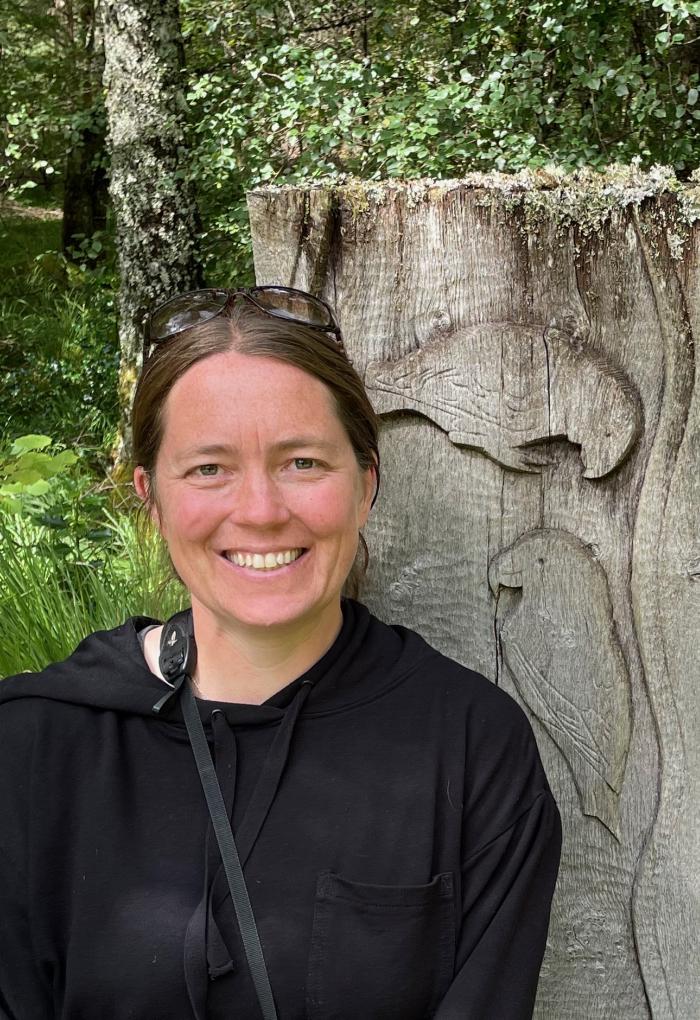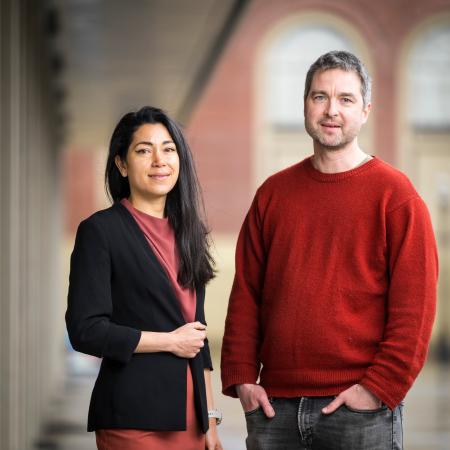When inclement weather hits, humans run indoors. Rain, snow, wind—although annoying—are not usually life threatening.
But what if you weighed less than 50 grams and measured 20 cm from beak to tail? Then inconvenient weather can be deadly.
Assistant Professor Jamie Cornelius received a coveted National Science Foundation Faculty Early Career Development (CAREER) award to measure the energy and fitness costs of metabolic and behavioral strategies used by songbirds during inclement weather.
“We’ve all had that experience ourselves being in a cold rain feels a heck of a lot colder than dry cold," Cornelius said. “This project is asking, what are the costs of storms on birds, and what can birds do about it? And how do those strategies change if they’re raising young or if they’re sick or old?”
Storms are continuing to increase in frequency and irregularity, making the need for birds to adapt more urgent.
Cornelius will use her five-year, $1.5 million CAREER award to study songbirds within different seasonal contexts.
Although she was not a huge birder before graduate school, a chance encounter steered her toward avian research.
‘I didn’t know that was a thing’
A passion for animals and a love of physiology makes veterinary medicine a rational career choice. And until her senior year at the University of Washington, that was her plan.
When Cornelius started pondering her next steps, a professor in the Department of Biology at the University of Washington, Marilyn Ramenofsky, asked her if she had ever thought about doing research.
“I responded, ‘What do you mean?’ I didn’t even know it was a thing,” Cornelius said. “I think we do a better job of communicating to undergrads, ‘This is a career path.’ A lot more people do research as an undergrad, but when I was in school that was pretty rare.”
Cornelius decided vet school wasn’t a good fit and instead applied to graduate school to study physiology and animal behavior.
At the University of California–Davis, she clicked with a researcher who studied birds and ended up becoming her graduate advisor.
“Now I am a bird person,” she said. “I call it fortuitous because if you’re interested in behavior and hormones and how animals are responding to their environment, birds are awesome because you actually get to watch them. Birds are out there, they’re awake when we're awake and singing, feeding and moving around their environment.”





